Six ɫ����ֱ�� graduate scholars have been named among the final recipients of the Government of Canada’s prestigious Vanier Canada Graduate Scholarships and Banting Postdoctoral Fellowships.
Dr. Christian Blouin, dean of the Faculty of Graduate Studies, thanked the government for its longstanding support as the programs conclude. “ɫ����ֱ�� is thankful for the privilege of having been the home of so many promising Vanier and Banting since its inception,” says Dr. Blouin. “These awards are well earned through tireless hard work, and we are cheering them on to impactful careers in the future.”
Justin Shimizu, a PhD student in clinical psychology and one of this year's Vanier recipients, reflected on their journey through academia and the importance of receiving the award.��
“It is an incredible honour and affirms the importance of continuing to engage in advocacy both within and beyond academia and motivates me to use this platform to continue fighting for meaningful change at a time when representation and equity for 2SLGBTQIA+ people is more critical than ever,” says Shimizu.��
Heath PhD student Renee Masching highlighted the flexibility the funding provides for community-based research. “Time is a precious and necessary element for meaningful engagement,” she says. “I will be able to prioritize relationships and networking without having to juggle a full-time job.”
We caught up with each of the 2024-2025 ɫ����ֱ�� Vanier recipients and this year's Banting Postdoctoral Fellow to learn about their research and its impact:��
Vanier Canada Graduate Scholarships
��
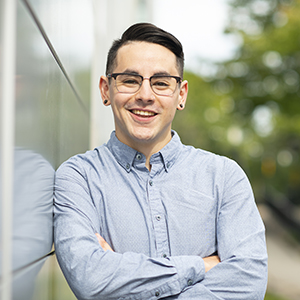 Justin Shimizu (They/Them)
Justin Shimizu (They/Them)
Program: PhD in Clinical Psychology
ɫ����ֱ�� the research:��My research in the Couples and Sexual Health Research Laboratory under the supervision of Dr. Natalie Rosen focuses primarily on couple-based interventions for the prevention and treatment of sexual challenges such as low sexual desire. I am particularly passionate about engaging in inclusive research practices that centre the experiences of 2SLGBTQIA+ couples. I recently completed a pilot study that explored the experiences of sexual and gender/sex diverse couples with our new online prevention program designed to support sexual well-being among first-time parent couples. My dissertation research focuses on women and gender/sex diverse people with chronic and distressing low sexual desire. I am particularly interested in how the ways couples interpret the causes of their low sexual desire affect their sexual well-being both daily and overtime. Additionally, I am examining whether helping couples shift toward more adaptive explanations is a key mechanism behind the beneficial effects of our new couple-based therapy for low desire that we are currently testing in our lab. We are also conducting an additional study to evaluate sexual and gender/sex diverse participants’ experiences of inclusivity with the therapy.
My impact: Sexual well-being is a critical part of many long-term romantic relationships and has been linked to better mental and physical health. Whether becoming a new parent for the first time or coping with chronic and distressing low desire, navigating challenges to their sexual relationship can be difficult for couples and can have negative psychological and relationship consequences for both partners. Unfortunately, few studies have examined the efficacy of evidence-based interventions for couples coping with these challenges. Our research aims to advance theoretical understandings of the sexual challenges couples experience, while providing clinicians and couples with accessible, evidence-based treatments and prevention tools. We also strive to increase the representation of marginalized populations in research, ensuring our resources are inclusive and beneficial for all couples.
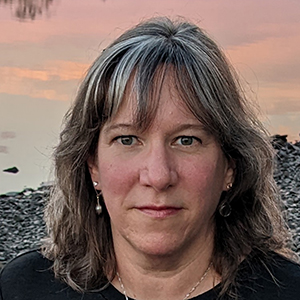 Renée Masching (she/her)
Renée Masching (she/her)
Program: PhD in Health
ɫ����ֱ�� the research: This research stems from my experiences as a First Nation community-based researcher and advocate, working alongside international Indigenous colleagues in response to HIV and Sexually Transmitted Blood Borne Infections. Leadership by and with Indigenous Peoples on sexual health rights requires attention from the global to local levels. I am excited to explore the processes necessary to implement global rights mechanisms such as the United Nations Declaration on the Rights of Indigenous Peoples, from the highest levels of governance to the local grassroots level, ensuring maximum relevance and benefit to individuals.�� My aim is to navigate linkages between rights-based theory, policy statements and implementation in frontline practice to understand both real and potential actions for enacting Indigenous rights and supporting self-determination.�� ��
My impact: Responding to HIV, and sexual health more broadly, has far-reaching implications for individuals, families, communities and nations, influencing population health and wellness. Opportunities for impact are integrated throughout the research process through meaningful partnerships with Indigenous peoples, extending from international to local levels. Opportunities to identify and inform advocacy and meaningful actions to uphold sexual health rights will be pursued collaboratively.�� A rights-informed response is a meaningful strategy to combat stigma and overcome taboos that currently limit a wholistic response to health. An outcome of the research will be a resource bundle designed to support Indigenous leaders and organizations in leveraging global policy mechanisms to impact Indigenous community and local/individual realities positively.
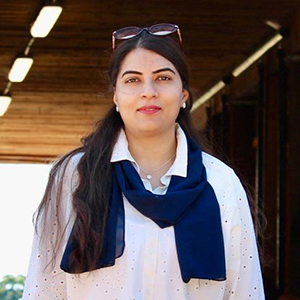 Hina Batool (she/her)
Hina Batool (she/her)
Program: Biochemistry and Molecular Biology (PhD) program
ɫ����ֱ�� the research: My research focuses on the biochemical and structural characterization of cribellate spider silk, a unique type of silk with remarkable adhesive and mechanical properties. Spiders produce diverse silk fibers, each specialized for different functions, and collectively, these silks exhibit exceptional strength, elasticity, biocompatibility and biodegradability. Despite their potential, many spider silks remain poorly studied, limiting their broader applications. Cribellate silk—in particular—is highly elastic and stiff, playing a critical role in prey capture due to its natural adhesiveness. These properties suggest it could serve as an excellent material for biomedical uses, yet its structural features, mechanical strength and biocompatibility are still underexplored. My project aims to produce cribellate silk fibers for the first time, enabling their detailed characterization. This approach will not only help uncover the fundamental properties of cribellate silk, but also allow tailoring of fibers by designing silk proteins with specific amino acid sequences. Ultimately, my work seeks to unlock the biomedical potential of cribellate spider silk, paving the way for innovative applications.��
My impact: One of the major challenges in biomedical tissue engineering is the lack of scaffold materials that combine biocompatibility with the structural and mechanical properties required for effective tissue regeneration. Cribellate silk, with its ability to form nanoscale fibers and generate strong adhesive forces without gluey substances, offers a unique advantage as a potential biomaterial. Its natural adhesive properties suggest it could serve as an ideal scaffold for supporting cell growth and integration. However, the mechanical behavior and biocompatibility of cribellate silk remain largely uncharacterized, leaving its biomedical potential unexplored. My research focuses on the recombinant production and detailed characterization of cribellate silk to assess its structural, mechanical, adhesive, and biological properties. These insights will contribute to the design of novel biomaterials and address the critical need for optimized scaffolds in tissue engineering.
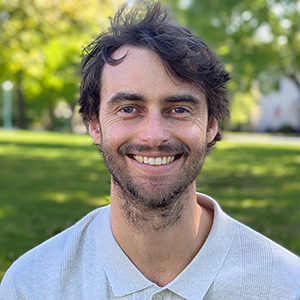 Jonathan Drew (he/him)
Jonathan Drew (he/him)
Program: Interdisciplinary PhD
ɫ����ֱ�� the research: My doctoral work poses the question: how can we provide universal access to high-quality health care without breaching the planet’s environmental limits? I think that achieving universal health care that is both sustainable and high-quality is among the most critical challenges for 21st century health systems. My research seeks to measure the gap between where we are and where we need to be, as well as mapping out pathways to close that gap.��
My impact: Beyond providing baseline estimates of health care’s environmental impacts in each Canadian province and territory, I want to demonstrate that our dual ambitions for high-quality health care and environmental sustainability are deeply interconnected. I hope that my work can contribute to an evidence-based roadmap for Canadian health-care decision-makers that prioritizes synergies and minimizes trade-offs between these two critical objectives.
 Victoria (Tori) Nelson (she/her)
Victoria (Tori) Nelson (she/her)
Program: PhD Pharmacology
ɫ����ֱ�� the research: My research focuses on understanding and treating issues related to diastolic dysfunction — a condition where the heart struggles to relax and fill properly, especially in aging individuals. By experimentally modelling inflammation and stress this project reveals how a variety of factors work together to contribute to diastolic dysfunction. A central component of the study is exploring how promising new therapeutics currently used in diabetes, might improve heart function. To bridge laboratory findings and patient care, a clinical component will analyze blood and tissue samples from patients, directly linking cell-based discoveries to real-world disease.
My impact: My research has the potential to further our understanding of diastolic dysfunction and its treatment by pinpointing the molecular pathways involved. Our project could reveal novel biomarkers for earlier, more accurate diagnosis of heart failure. In particular, our work addresses urgent unmet needs in aging populations and those at exceptional risk for diastolic dysfunction-related complications. Collectively, these advances promise improved patient outcomes, enhanced longevity, and decreased healthcare burden for individuals with heart failure and related disorders.
Banting Postdoctoral Fellowship
��
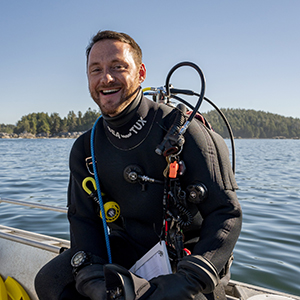 Kieran Cox (he/him)
Kieran Cox (he/him)
Program: Post-doctoral Researcher in Biological Sciences��
ɫ����ֱ�� the research: My postdoctoral research will address the extent to which anthropogenic noise has transformed aquatic soundscapes. This will be accomplished by quantifying global soniferous (sound-producing) fish communities and mapping noise response thresholds for three of the most iconic species in the Northeast Pacific: killer whales, salmon and herring. This information will then be used to ensure that the Canadian and American Ocean Noise Strategies can conserve the diverse array of taxa that rely on ocean soundscapes. These ambitious objectives will transform our approach to managing marine soundscapes by informing the creation of underwater noise regulations that extend beyond current taxonomic constraints and data limitations.
My impact: The insight gained through my postdoctoral fellowship will inform us about how noise levels have changed over time, where noise currently exceeds biological thresholds and identify priority areas for mitigation. Collectively, these findings will facilitate the development of a strategy-to-regulation action plan, as called for by Indigenous Nations that have expressed concern for the taxa considered in this analysis, governmental agencies attempting to manage this pollutant, non-governmental agencies keeping the public informed and coastal communities eager to protect ocean soundscapes.

